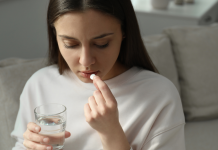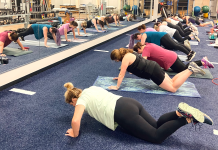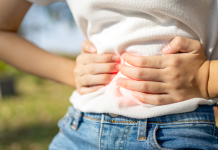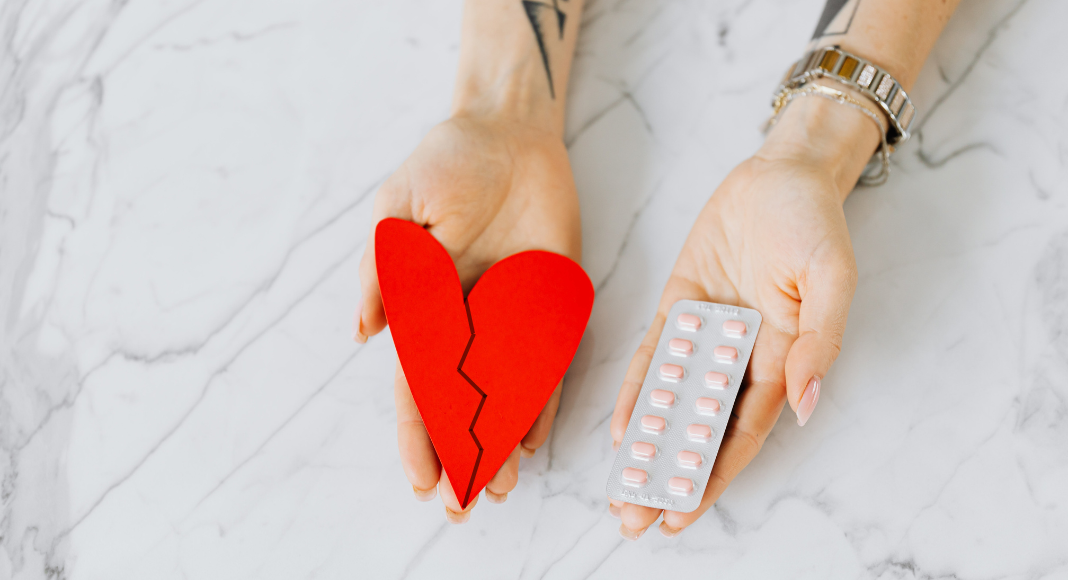 I gave birth to my daughter at the age of 36. Prior to that, I had been on some form of hormonal birth control since the age of 17. I started taking hormonal birth control pills to alleviate the awful cramping (and emotional side effects) of starting my period in elementary school. By the time high school rolled around, my poor mother was ready for some relief and willing to try anything to help me.
I gave birth to my daughter at the age of 36. Prior to that, I had been on some form of hormonal birth control since the age of 17. I started taking hormonal birth control pills to alleviate the awful cramping (and emotional side effects) of starting my period in elementary school. By the time high school rolled around, my poor mother was ready for some relief and willing to try anything to help me.
After an embarrassing first visit to her OBGYN, I started down the path of a hormonal journey. I didn’t realize at the time that this journey would end up lasting nearly two decades.
At some point, I made the switch from hormonal birth control pills to Nuvaring (also a hormonal solution, but only requiring maintenance once per month). Preventing pregnancy and alleviating menstrual cramping had become too easy, almost second nature. Just pop a pill or insert a ring, and carry on. It never even occurred to me how the hormones might be affecting my body in the long term or that I even had other options. As a geriatric millennial experiencing puberty in the late ’90s, we didn’t think twice about taking birth control or how it might affect our ability to conceive later in life or any of its unrealized long-term side effects. Shortly after giving birth to our daughter however (after a brief time going back on hormonal birth control), I decided to re-evaluate what I was putting in my body and ultimately decided to break up with hormonal birth control once and for all. The transition from hormonal dependence to a natural cycle was a roller coaster for which I was NOT prepared with side effects that lasted nearly a year. However, now that my hormonal birth control ‘detox’ is complete and I’m on the other side of the drama, I couldn’t be happier with my decision to live hormone-free.
The Why
When my husband and I finally decided to try to get pregnant in our mid-30s, it wasn’t as easy as we expected. What my younger self did not know or understand was that hormonal birth control actually (safely*) stops ovulation from ever occurring. Whoa. Mind blown. You do NOT ovulate on hormonal birth control.
That’s when it hit me: I’d been on some form of hormonal birth control for most of my life, meaning my body hadn’t ovulated in over two decades.
So when we decided to try to conceive and stopped birth control, my body had to learn how to ovulate for the first time in years. Despite my friends suggesting we wait a few months before trying to conceive after stopping hormonal birth control, we thought we were probably ok and ended up pregnant rather quickly. We were excited…until the pregnancy ended with a heartbreaking miscarriage in the first trimester. The official diagnosis was a blighted ovum, but I couldn’t help searching for something to blame. I allowed myself to believe or at least suspect that my years of hormonal birth control dependence certainly didn’t help.
After a year of trying to conceive post-miscarriage, we became pregnant and gave birth to our daughter. As previously mentioned, I briefly went back on birth control once I stopped breastfeeding, but for the first time in my life (after nine-plus months of my body being in a natural state), I didn’t like the way the birth control made me feel.
I was no longer in tune with my body or natural cycle. I was also experiencing some acne and I wanted to rule out that my birth control wasn’t inflaming the issue. So, I spoke with my doctor about my options and started on my hormone-free pregnancy-prevention journey.
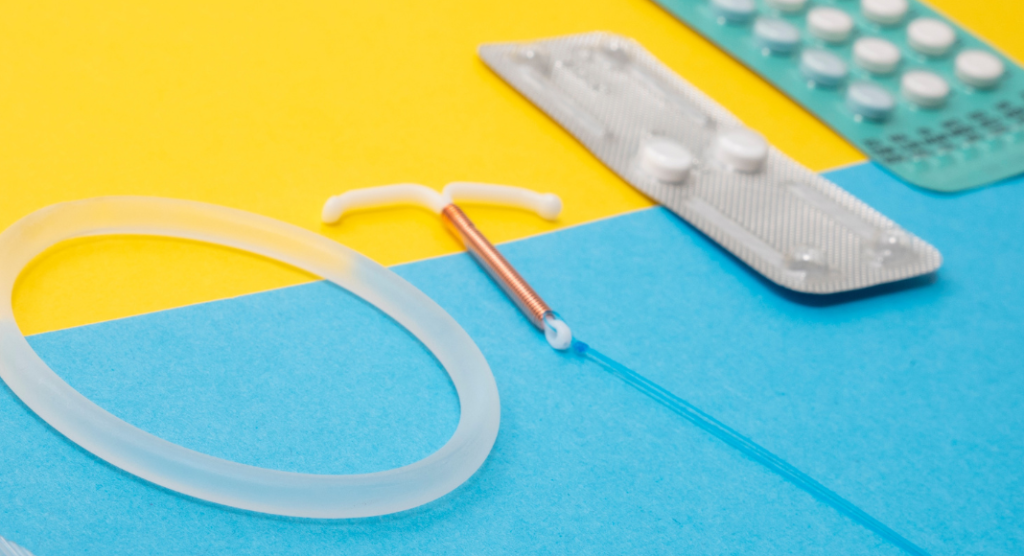 The Breakup Process
The Breakup Process
I’ve always believed in the power of medicine and science. For many women with medical issues including but not limited to PCOS, hormonal birth control can be a real miracle worker. I am not a doctor and in no way am I suggesting my hormone-free family planning method is right for you. In fact, who am I to judge; I used it for YEARS and probably still would had it not been for a particularly trying postpartum period. I was simply ready to try something new after years of being married to hormones. My husband and I were not ready for another child (and still are not), so the idea of going birth control free was intimidating to say the least.
We considered a vasectomy, but that wasn’t an option we felt comfortable with at the time. My doctor suggested an IUD (the copper options are hormone-free), but I had several friends with IUD-associated horror stories and I didn’t want to take the chance of further complications.
The next option was a new prescription gel called Phexxi, an on-demand, hormone-free birth control option used only moments prior to intercourse (no daily/month pills to take) lasting one-hour from insertion. I loved this option for the first few months. It seemed too easy! It was as simple as inserting a tampon (filled with gel) and was basically mess-free. Like all good things though, Phexxi had to come to an end. I quickly learned my postpartum pelvic floor wasn’t prepared for this new-age contraceptive option.
Spoiler-alert: I ended up with several UTIs and yeast infections as a result of the Phexxi gel used to prevent conception. My sensitive postpartum body simply wasn’t having it.
So, back to the drawing board we went. Condoms made us cringe after nearly two-decades of togetherness followed by marriage, monogamy and conceiving a child, so we continued exploring our options. I was loving the freedom of living hormone-free and wasn’t willing to go back. I also wanted to rule out — once and for all — that the terrible postpartum acne I was experiencing wasn’t just a side effect of going back on hormonal birth control.
In a sense, letting go of birth control was putting me back in control of my body.
I was able to learn through the power of deduction that my acne was hormone-stress related and was able to completely clear my acne by adding a mild anxiety medication to my routine and prioritizing stress management. I learned how to listen to my own body’s needs, like setting aside time for working out when I know my cycle might throw me for a loop.
 What Worked
What Worked
I had almost given up on finding a birth-control alternative that I felt comfortable with until I started seeing ads for a product called Oura. (Note: I am not a paid spokesperson for this product, rather sharing my personal experience and what worked for me.) Oura is a health and lifestyle wearable ring; you wear it daily on a finger of your choosing, just like jewelry. The ring digitally tracks your sleep, your activity, and best of all, your basal body temperature. It then reports back to the Oura app on your smartphone.
Ladies, remember trying to conceive and having to wake up every morning at the same time to take your basal body temperature with a special thermometer, so you could manually predict and confirm your ovulation each month? Torture, right? No more. This ring, in combination with the ‘Oura app’ and a sister app called ‘Natural Cycles‘ (the first FDA-cleared birth control app), allows me to monitor and avoid my fertile days each month, as well as confirm ovulation, and compare cycles month-to-month.
What does that mean for avoiding pregnancy? Simply abstaining from intercourse or using alternative birth control methods like condoms on your fertile days or “red days” (typically five to seven days indicated as ‘red’ days on the Oura app). These fertile days are predicted by your wearable ring’s data and the app’s predictive algorithm.
The product suggests that it takes approximately three months of ring-wearing and app syncing to accurately predict and protect the user from an unplanned pregnancy (or conceiving if using the app for fertility). The data is collected virtually via bluetooth to your device. Additionally, you can add additional data manually for greater accuracy. For instance, you can manually enter changes in your cervical mucus, the heaviness of your period, your moods, and the start and end of your period each month. The more often you wear your ring and add self-reported insights, the better the app works. I’ve been using the Oura Ring for eight months. I rarely add much outside of the start and end of my periods, and it’s working like a charm so I don’t feel like that’s a ton of upkeep. I’ve successfully avoided pregnancy while remaining hormone-free and getting to know my body better than I ever imagined possible in a more natural way.
Worth It
Breaking up with hormonal birth control was no walk in the park. While I was searching for an option that worked for my body over the course of that year, I experienced a roller coaster of symptoms, both physical and emotional. Sometimes I considered giving up and going back on hormonal birth control. At times I found the symptoms unbearable. From what I was referring to as ‘life-ruining acne’ as a result of the purging hormones and stress, to teenager-level cramping — it definitely wasn’t a walk in the park. The idea of having long, heavy and painful cycles reminiscent of my teen years by choice seemed ridiculous on many days.
That being said, I started becoming more in tune with my body. With each passing month, I was able to better recognize why I was feeling a certain way in relation to my cycle. I could say with confidence, “I’m feeling a little blue today, but I know I’m about to ovulate so I’m not going to allow it to ruin my day.” I was suddenly connected to my body and understood how my body and mind were connected.
Not to bury the lead, but the biggest and best benefit to quitting hormonal birth control, ladies, is the hormone-free sex. It was better than anything I’d ever experienced in my life and I wasn’t about to give up my newly found freedom. My husband and I always had a healthy sex life, but I didn’t know how much I could truly enjoy it until I said goodbye to hormonal birth control. I actually reached out to a few girlfriends who also quit hormones and they confirmed my suspicions: birth control was numbing my female libido in a way I hadn’t realized and couldn’t comprehend. Cheers!











